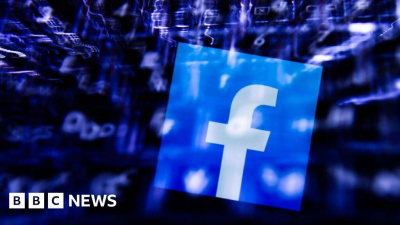BBC News Top Stories-Technology Meta takes down China-based network of thousands of fake accounts
December 1, 2023 3 min 588 words
这篇报道揭示了Meta最近在中国拆除了一个数千个虚假账号的网络。这些账号冒充美国人,散布关于美国政治和中美关系的极端言论,涉及话题包括堕胎、文化战争和对乌克兰的援助。虽然Meta没有将这些账号直接与北京官员联系起来,但他们在2024年美国大选前看到了中国这类网络的增加。报道指出,中国现在是这种网络的第三大地理来源,仅次于俄罗斯和伊朗。这次拆除行动包括超过4,700个账号,它们使用了从世界各地其他用户复制的头像和名字。这些账号相互分享和点赞,有些内容似乎直接来自X(前身是Twitter)。整体上,这种网络显示出没有明显的意识形态一致性。Meta在报告中表示,“这种方式的目的是不明确的,是为了放大党派紧张关系,吸引这些政治人物的支持者,还是为了让分享真实内容的假账号显得更加真实。”报道指出,这个庞大的中国网络在真实用户之前被阻止。总体而言,这反映了外部威胁行为试图在2024年美国选举前通过互联网影响人们,我们需要保持警惕。
Meta says it recently removed a network of thousands of fake and misleading accounts based in China.
The users posed as Americans and sought to spread polarising content about US politics and US-China relations.
Among the topics the network posted about were abortion, culture war issues and aid to Ukraine.
Meta did not link the profiles to Beijing officials, but it has seen an increase in such networks based in China ahead of the 2024 US elections.
China is now the third-biggest geographical source of such networks, the company said, behind Russia and Iran.
The recent takedowns were outlined in a quarterly threat report released on Thursday by the parent company of Facebook, Instagram and WhatsApp.
The China-based network included more than 4,700 accounts and used profile pictures and names copied from other users around the world.
The accounts shared and liked each other's posts, and some of the content appeared to be taken directly from X, formerly Twitter.
In some cases the accounts copied and pasted verbatim posts from US politicians - both Republicans and Democrats - including former House Speaker Nancy Pelosi, Michigan Governor Gretchen Whitmer, Florida Governor Ron DeSantis, Reps Matt Gaetz and Jim Jordan, and others.
The network displayed no ideological consistency.
In examples released by Meta, an account in the China-based network reposted the words contained in a tweet earlier this year by Democrat Congresswoman Sylvia Garcia. She criticised Texas's abortion laws and wrote: "Let's remember - abortion is healthcare."
But another account in the network copied-and-pasted a tweet from Republican Representative Ronny Jackson, who wrote: "Taxpayer dollars should NEVER fund travel for abortions."
Meta's report stated: "It's unclear whether this approach was designed to amplify partisan tensions, build audiences among these politicians' supporters, or to make fake accounts sharing authentic content appear more genuine."
The company's moderation rules forbid what Meta calls "co-ordinated inauthentic behaviour" - posts by groups of accounts that work together and use false identities to mislead other users.
Often the content shared by such networks is not false and references accurate news stories from major media outlets. But instead of being used for legitimate comment or debate, the posts are meant to manipulate public opinion, push division and make particular viewpoints seem more popular than they really are.
Meta said the large Chinese network was stopped before it took off among real users.
Ben Nimmo, who leads investigations into inauthentic behaviour on the company's platforms, said such networks "still struggle to build audiences, but they're a warning".
"Foreign threat actors are attempting to reach people across the internet ahead of next year's elections, and we need to remain alert."
The company said it also discovered two smaller networks, one based in China and focusing on India and Tibet, and one based in Russia which posted primarily in English about the invasion of Ukraine and promoted Telegram channels.
Russian networks, which prompted the company to focus on inauthentic campaigns following the 2016 election, have increasingly focused on the war in Ukraine and have attempted to undermine international support for Kyiv, the report said.
Meta also noted that the US government stopped sharing information about foreign influence networks with the company in July, after a federal ruling as part of a legal case over the First Amendment that is now under consideration by the Supreme Court.
The case is part of a larger debate about over whether the US government works with tech companies to unduly restrict the free speech of social media users.

